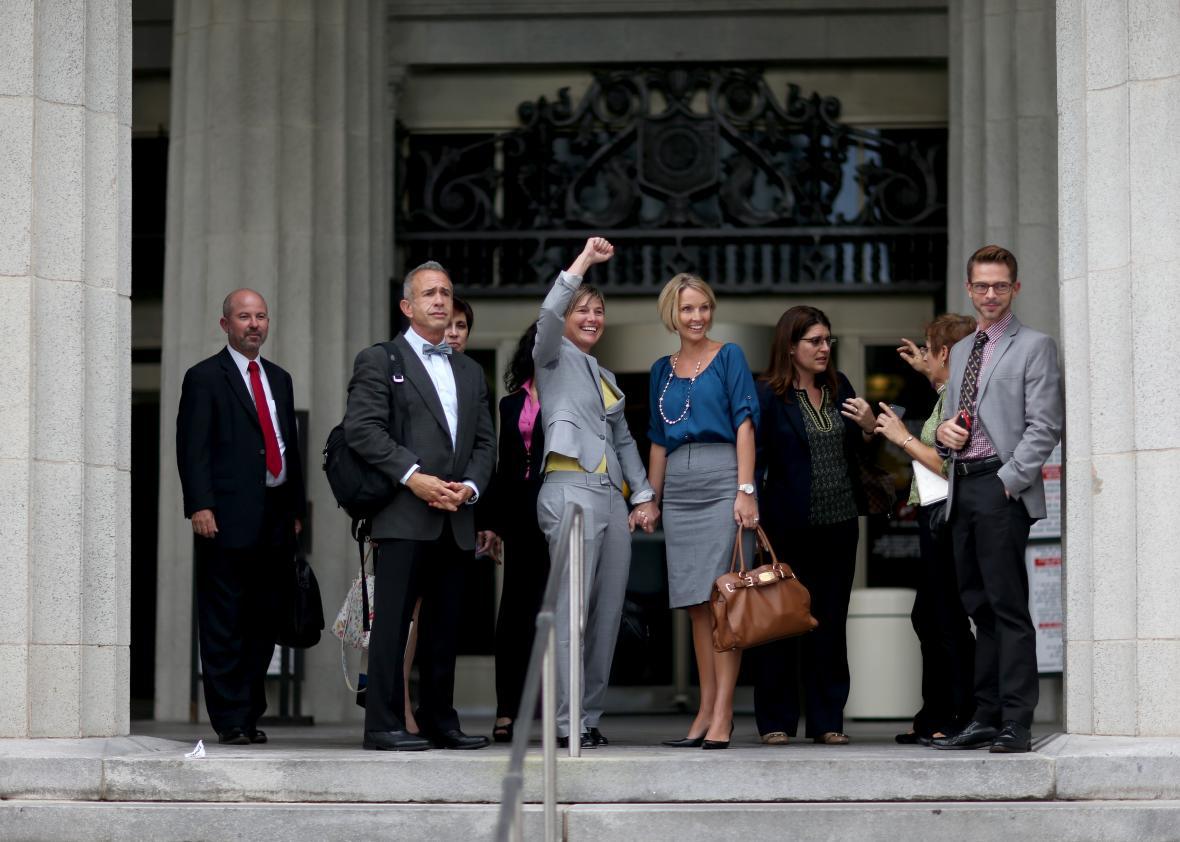James Merrick Smith and Hal F.B. Birchfield lived together in Florida for 42 years. They married in New York in 2012, and Smith died in Florida in 2013. At the time, Florida refused to recognize same-sex unions—so Smith’s death certificate listed him as unmarried with no surviving spouse. After the Supreme Court ruled in Obergefell v. Hodges in 2015 that the Constitution protects same-sex couples’ right to marry, Birchfield asked the state to correct Smith’s death certificate. But Florida refused, declaring that it would not correct any death certificate that falsely listed an individual as unmarried with no surviving spouse unless compelled to do so by an individual court order.
Birchfield and another gay widower, Paul Mocko, sued on behalf of themselves—and all other Floridians whose deceased same-sex spouses’ death certificates listed them as unmarried. And on Thursday, U.S. District Judge Robert Hinkle ruled in their favor and ordered the state to correct these death certificates. The state must now re-issue an accurate death certificate for Smith and all other people who were incorrectly designated unmarried at time of death because their spouses were of the same sex.
As Hinkle explained in his succinct but emphatic decision, this case is really very easy. Florida had interpreted existing law to require an individual court order for every person who wished to fix the death certificate of his or her same-sex spouse. This dubious interpretation may have been a result of state officials’ desire to prevent gay people from easily correcting their deceased spouses’ death certificates. But whatever its merits, it must give way to Obergefell’s constitutional command. Under that decision, surviving same-sex spouses hold a Due Process and Equal Protection right to have their marriages recognized by the state. And by refusing to readily re-issue death certificates, Florida is actively violating the surviving spouses’ constitutional rights.
“As a matter of federal constitutional law,” Hinkle explained, “a state cannot properly refuse to correct a federal constitutional violation going forward, even if the violation arose before the dispute over the constitutional issue was settled.”
To remedy the problem, Hinkle ruled that the state must issue corrected death certificates to all individuals who entered lawful same-sex marriages but died before Florida recognized them. His straightforward decision marks yet another entry into a genre I call “Judge Hinkle Reminds Florida That the Constitution Exists.” Hinkle, you may recall, first blocked Florida’s same-sex marriage ban in 2014, then ordered recalcitrant state officials to comply with the law in a series of follow-up rulings involving uncooperative clerks and birth certificates. He is the unsung hero of marriage equality in Florida. And he deserves credit for upholding the law at a time when less fair-minded judges are finding novel ways to relegate same-sex couples to second-class citizenship.
